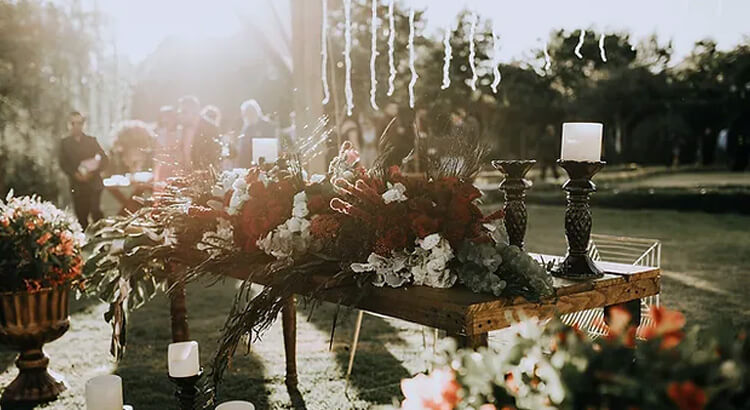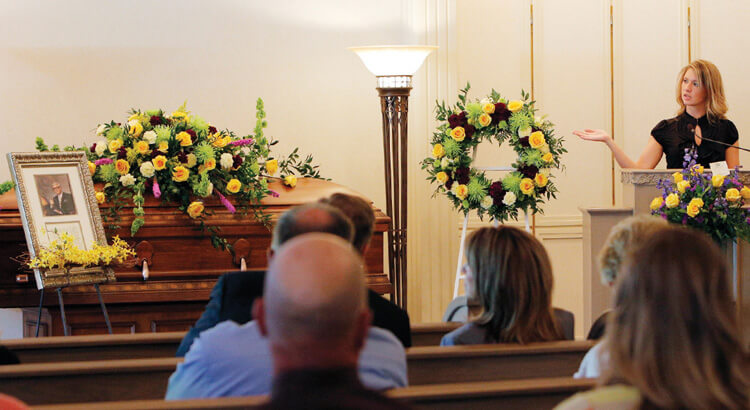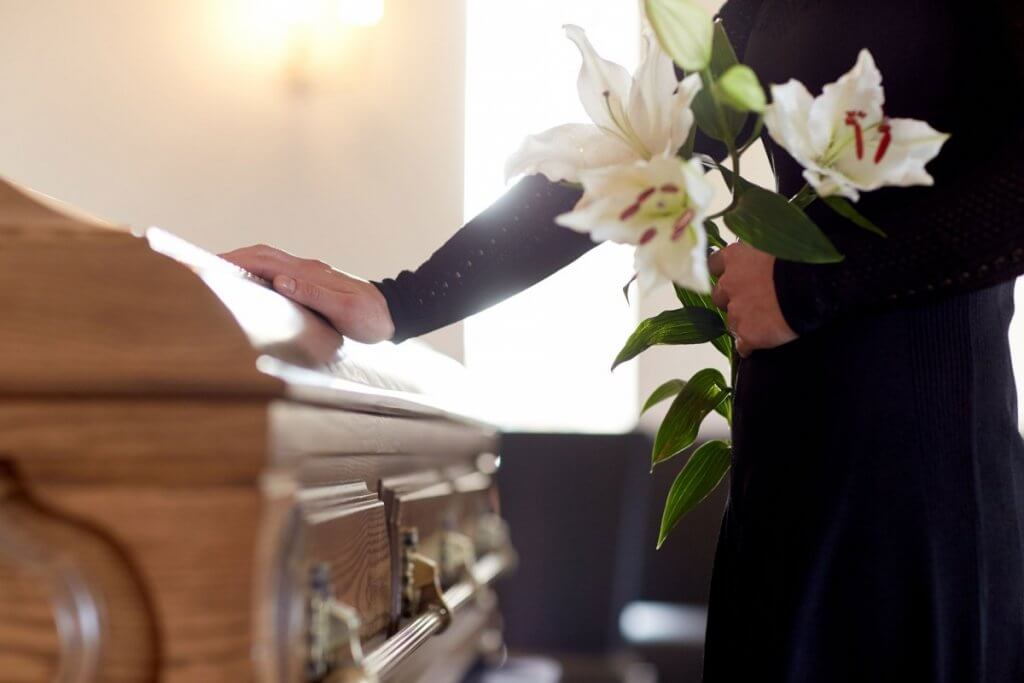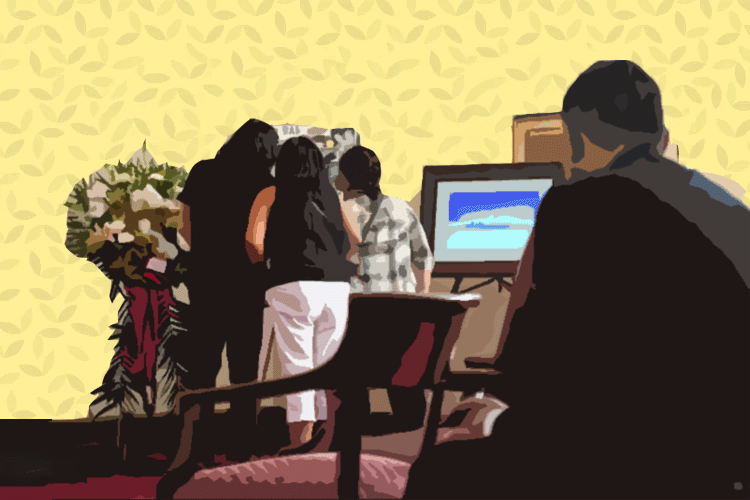Wakes, viewings, visitations, funerals, memorials services – the list goes on. Sometimes it can be hard to keep track of all the traditions associated with death.
It’s normal to have questions. A common question people ask is how long funeral wakes last.
A typical wake lasts for two to nine hours, although some wakes can last for multiple days, depending on the deceased’s cultural and religious beliefs. Some guests attending wakes may only visit for 10 – 20 minutes before the funeral service, while close family members often stay for its entirety.
However, there are many different funeral wake and viewing traditions and practices that vary around the world. In this post, I’m going to explain how long wakes go for across different cultures, and other important information you need to know before attending one.
In This Article
What Is a Wake?
A wake is an informal social gathering held after someone dies where attendees talk, pay respects, and honor the deceased. Typically, the wake is held before the funeral at the funeral home, but this varies by region. The deceased’s body is sometimes present for viewing at the wake.
Wakes stem from Celtic traditions in which a family would gather at a vigil in a private home. There, the family would watch over the body for days before the funeral. Many of these traditions were later adopted by Irish Catholics.
Unlike fixed-length services that people should sit through, wakes are “drop-in” events. This means that while wakes can (and often do) go for many hours, there is no expectation for you to stay for its entire duration.
How funeral wakes work differs from region to region. There are formal wakes in the USA, where some may be expected to view the body before the funeral and give condolences to each family member individually in a receiving line.

On the other hand, there are wakes in England held in a pub immediately after a funeral. Those “wakes” could be quite accurately described as “great British p*** ups (with lots of tears)”.
Despite differences across countries, cultures, and religions, a wake’s fundamental purpose stays the same. They are an opportunity to express condolences and say goodbye.
How Wakes Differ From Viewings and Funerals
Funerals vs Wakes
A funeral is a formal service, usually held at a church or funeral home, where close friends, family, and acquaintances of the deceased person will gather to pay respects, read eulogies, and mourn.

Alongside being less formal than funerals, wakes are usually longer. However, because it is not a requirement to stay at a wake for its entire length, many guests outside the deceased’s closest loved ones will spend more time at the funeral than at the wake.
Viewings vs Wakes
In the USA, many use the terms “wake”, “viewing”, and even “visitation” almost synonymously.
Admittedly, they are similar. In many cases, any of the three words could be used to describe the same service. Yet, there are some key differences.
Viewings are events that take place before the funeral to allow grieving families to view (and sometimes touch) the deceased’s body after it has been prepared by an embalmer. The body will always be present at a viewing, usually in an open type of casket with an uncovered face. Unlike wakes, viewings will almost always take place at a funeral home.
Visitations are opportunities for those who knew the deceased to visit their closest family and express condolences. The body is only sometimes present at visitations, so they are common in the cases of burial without a casket. Visitations usually take place at the home of the deceased’s family members.
Wakes are similar to viewings, but given their Catholic origins, they can sometimes be slightly more formal with the recitement of religious rites. In the UK, generally speaking, a modern funeral wake is like a “visitation after the funeral”.
Here’s a simple way I’ve found to help remember the differences:
- Viewings are for viewing the body.
- Visitations are for visiting the family.
- Wakes are for helping the family “wake up” after a period of mourning.
When Are Wakes Held?
Wakes can be held before or after funerals. In the USA and Canada, wakes are usually held on the same day as or on the night of the funeral. In many other countries, wakes are held immediately following the funeral.
It may be worth trying to schedule them for the night before the funeral. A good time slot is 3 pm – 7 pm, as this allows people with weekday work commitments to come and view the body.
It is common for funeral services to immediately follow a wake held at a funeral home. By scheduling the two services at around the same time, you can save money on funeral costs.
What To Expect When Attending a Wake
Unlike with a funeral, for which you might receive a written program, wakes are usually a fair bit more “free form”.
Put simply, no two wakes are the same. Not only will you have all the cultural and religious variables to contend with, but you also have to consider what family members have planned (and how well those plans are playing out!).
Some families treat wakes like a “celebration of life”, with food and drinks served in abundance, similar to a wedding reception in some respects. Others take a more traditional approach.
A tip to get an idea about wake etiquette in your culture is to ask the funeral director or planner about the dress code.
If the dress code is the same as for the funeral, and requires formal clothing like a button down shirt and dark colored dress pants, you can expect a more macabre affair. You might be expected to express heartfelt condolences to the family of the deceased and pay respects to their loved one’s body in a funeral home. It depends somewhat on the family’s preference.
A tip to get an idea about wake etiquette in your culture is to ask the funeral director or planner about the dress code.
If the organizer tells you there isn’t a dress code, you should still dress tidily – I wouldn’t recommend you wear jeans. However, you can expect the wake to be a more casual gathering for sharing positive memories and reminiscing on the life of the deceased.
How Long Are You Expected To Stay at the Wake?
A wake is a “drop-in” event. Once you’ve paid your respects, you are welcome to leave the wake when you feel comfortable doing so. If you are close with the deceased’s loved ones, you may wish to stay longer to share stories about their life.
That said, you are not obliged to do so. There is nothing wrong with “just dropping by with a gift”, or bringing flowers, a fruit basket, baking, or a sympathy card. There is also nothing wrong with leaving immediately after expressing condolences.

However, I do not recommend delaying your arrival at the wake to be just when it’s ending. By the time the wake ends, the deceased’s bereaved family is usually physically and emotionally exhausted.
You want to avoid being the person turning up and ordering a coffee 2 minutes before Starbucks closes. This is especially the case when the Starbucks workers in my analogy have just lost someone very close to them and are going through an extremely difficult time.
The Bottom Line
While it is true that how long a wake will go for clearly depends on various factors, this doesn’t mean you have to be entirely unprepared.
Consider calling in advance, show up, pay your respects, offer comfort, and ensure the deceased’s family knows you’re there for them if they need it.
If you have any further questions about attending a wake or anything else beyond life, please feel free to get in touch.










